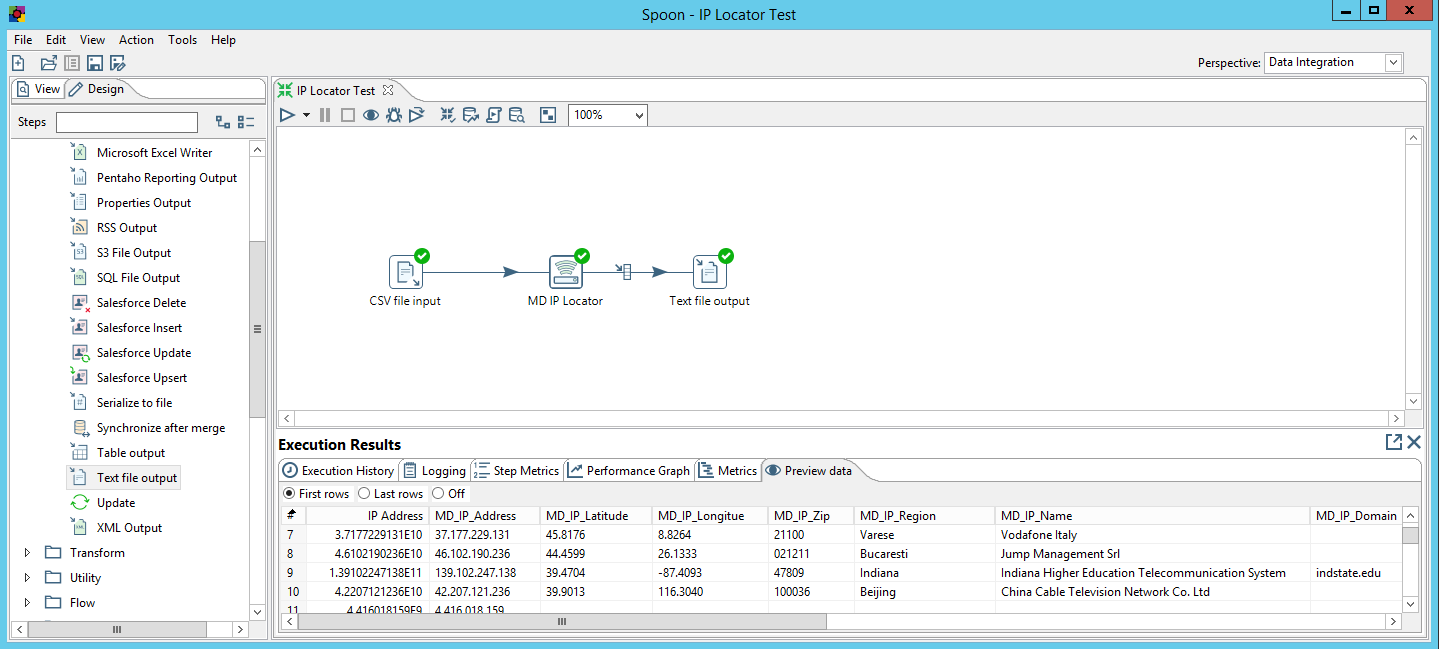This wiki is no longer being updated as of December 10, 2025.
|
Contact Zone:IP Locator Tutorial: Difference between revisions
No edit summary |
No edit summary |
||
| (One intermediate revision by the same user not shown) | |||
| Line 4: | Line 4: | ||
The following steps will guide you in the basic usage of IP Locator for Contact Zone. | The following steps will guide you in the basic usage of IP Locator for Contact Zone. | ||
==Add Component== | ==Add Component== | ||
| Line 81: | Line 73: | ||
Click '''File''' and select '''Save as''' to save the project. | Click '''File''' and select '''Save as''' to save the project. | ||
[[File: | [[File:CZ_IP_Tutorial_Save.png|link=]] | ||
Latest revision as of 23:16, 6 January 2017
| IP Locator Navigation | |||||
|---|---|---|---|---|---|
| Overview | |||||
| Tutorial | |||||
| |||||
| |||||
| Result Codes |
The following steps will guide you in the basic usage of IP Locator for Contact Zone.
Add Component
To add IP Locator to your project, drag the component onto the Data Flow screen. This will snap the IP Locator Component into your workflow space.
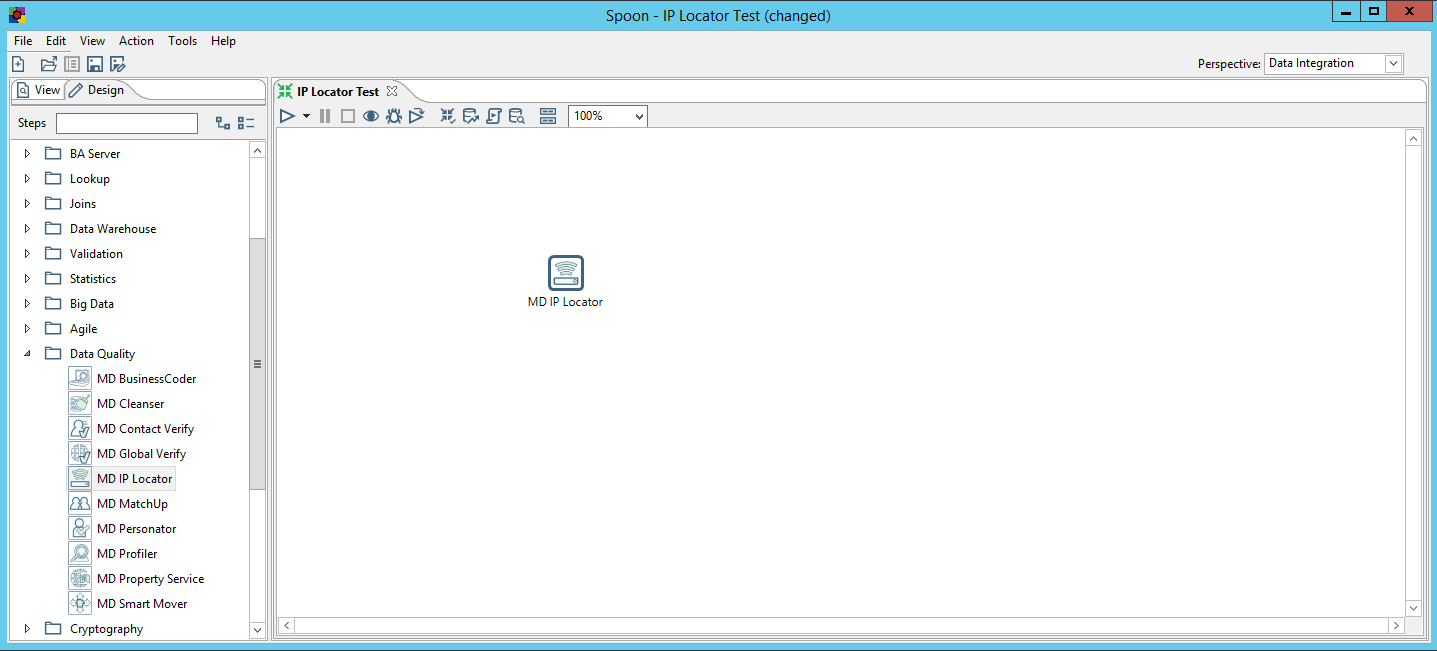
Connect Input
Select a data flow source for your input data. Many formats can be used as sources, including Excel files, flat files or Access Input data sources.
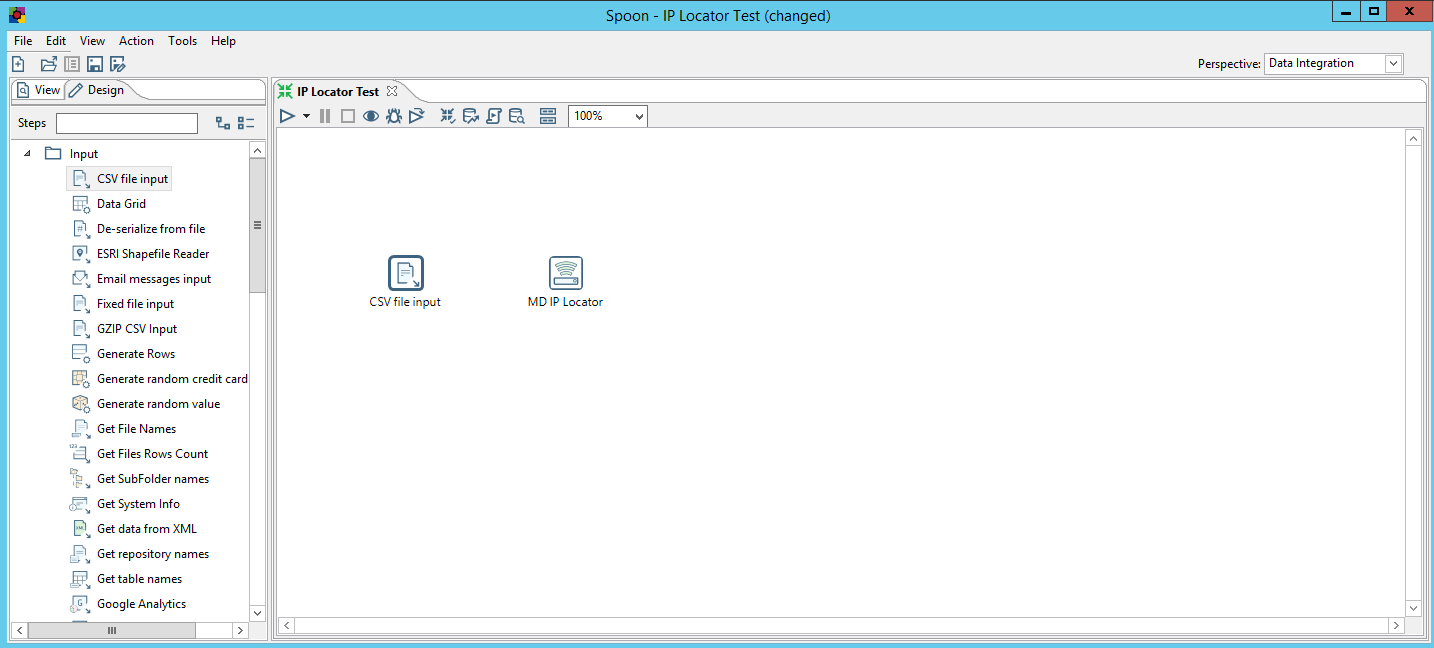
Configure Input
Configure the input by double-clicking on the component. Click Browse and navigate to your input file.
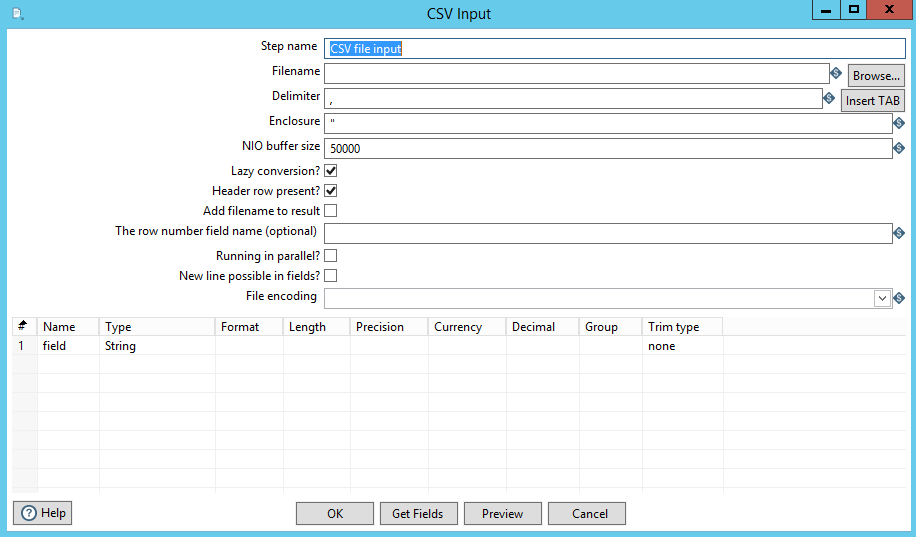
Click Get Fields to confirm that your input file is being read correctly.
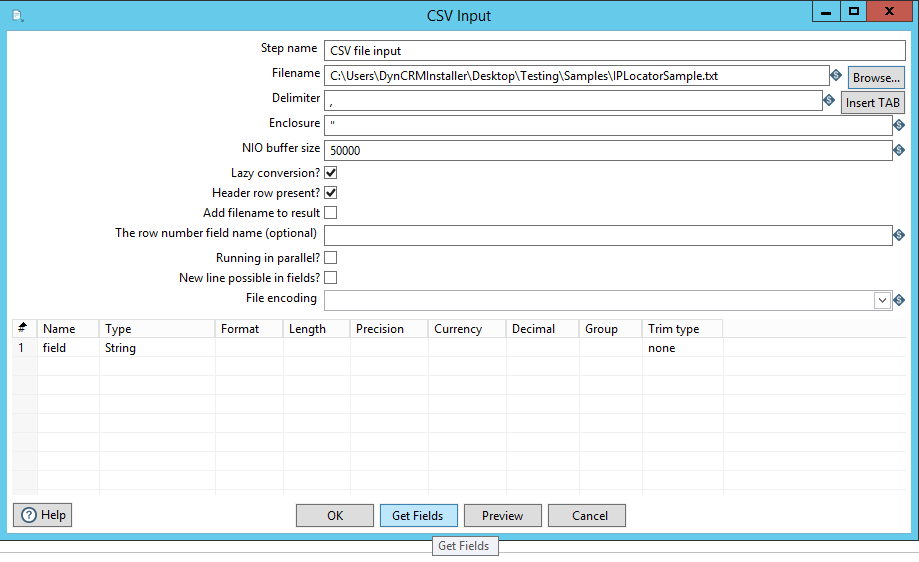
Connect this data source to the IP Locator Component by dragging the arrow from your data flow source to the IP Locator Component.
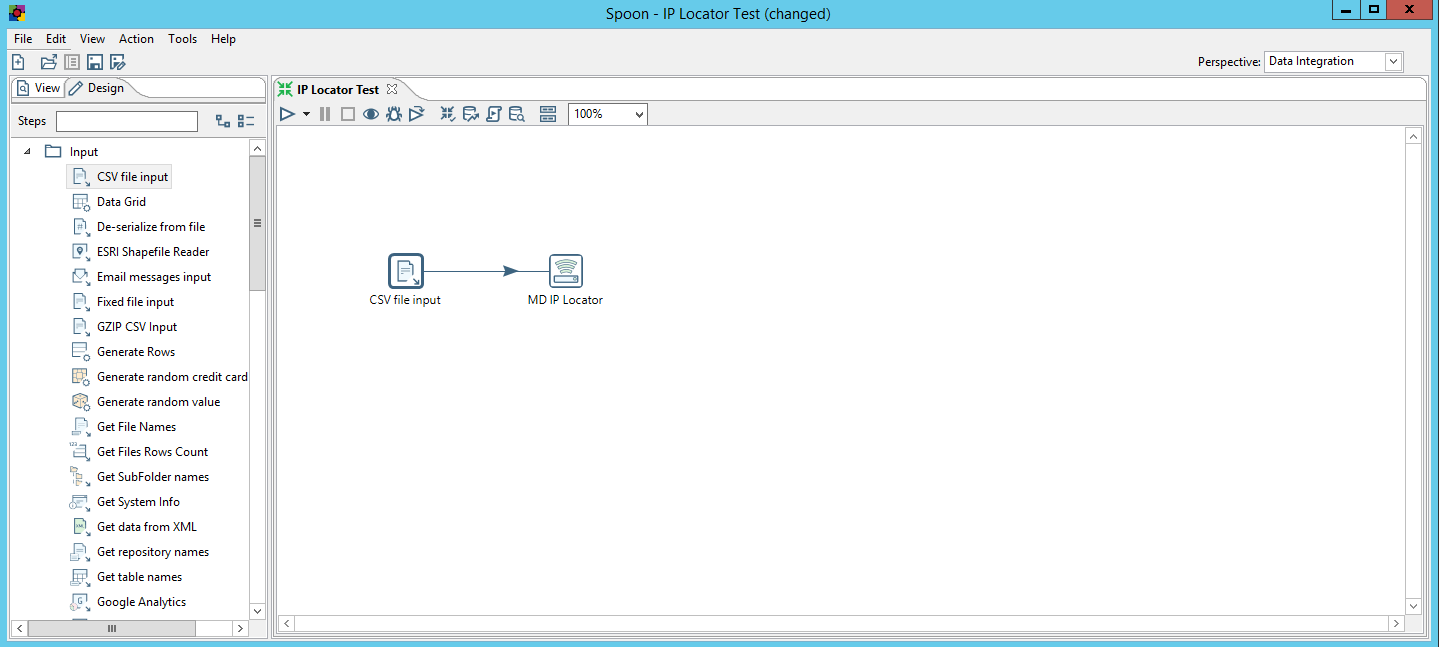
Configure Component
Double click the IP Locator Component to bring up the interface.
Advanced Configuration
Click the Advanced Configuration button on the bottom of the window.
Set up the IP Locator Advanced Configuration. See Advanced Configuration.
IP Locator
Map the input and output fields.
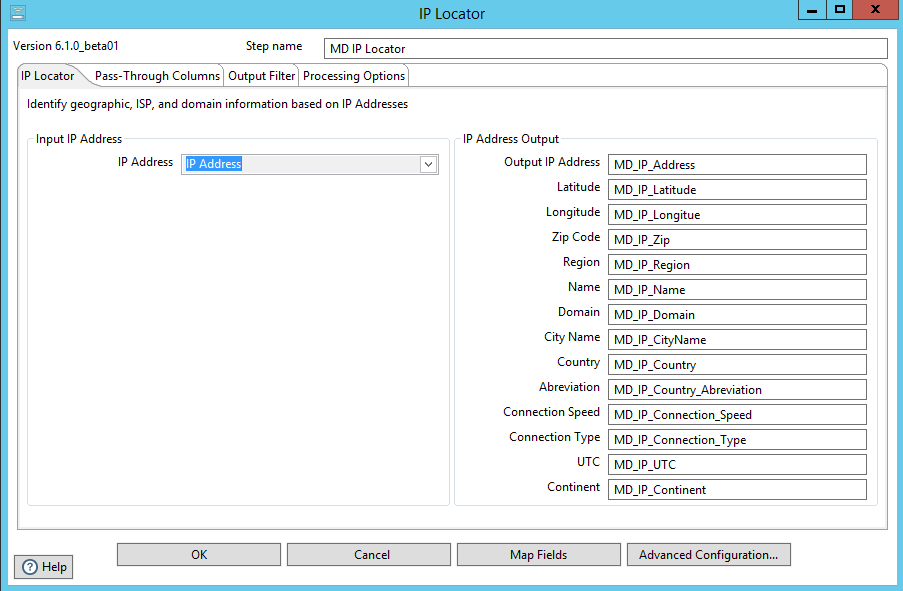
Pass-Through Columns Tab
Click on Get Fields to retrieve column names. You may choose which columns to pass through to the data file and which fields to filter out.
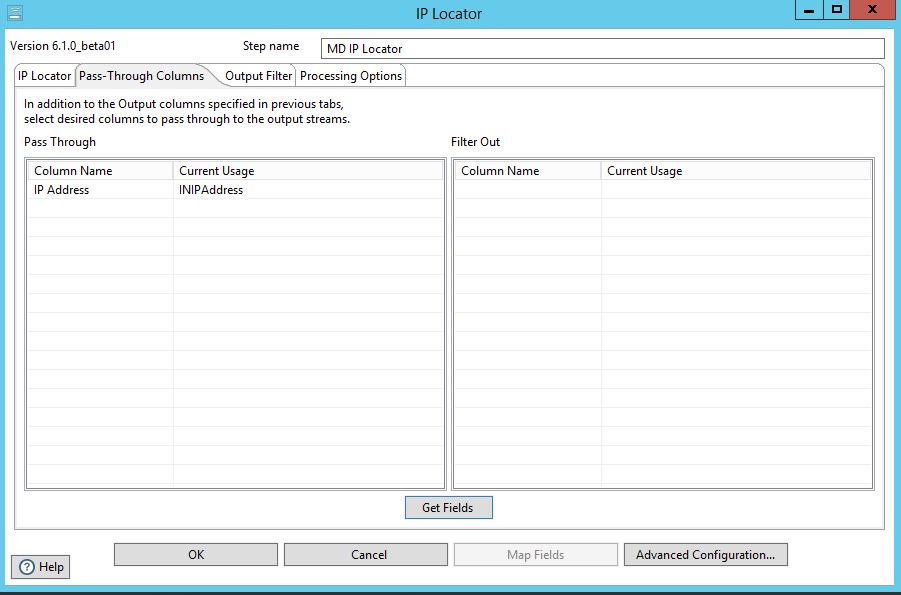
Output Filter Tab
You can specify the filter from the drop down or you can also create your own custom filter.
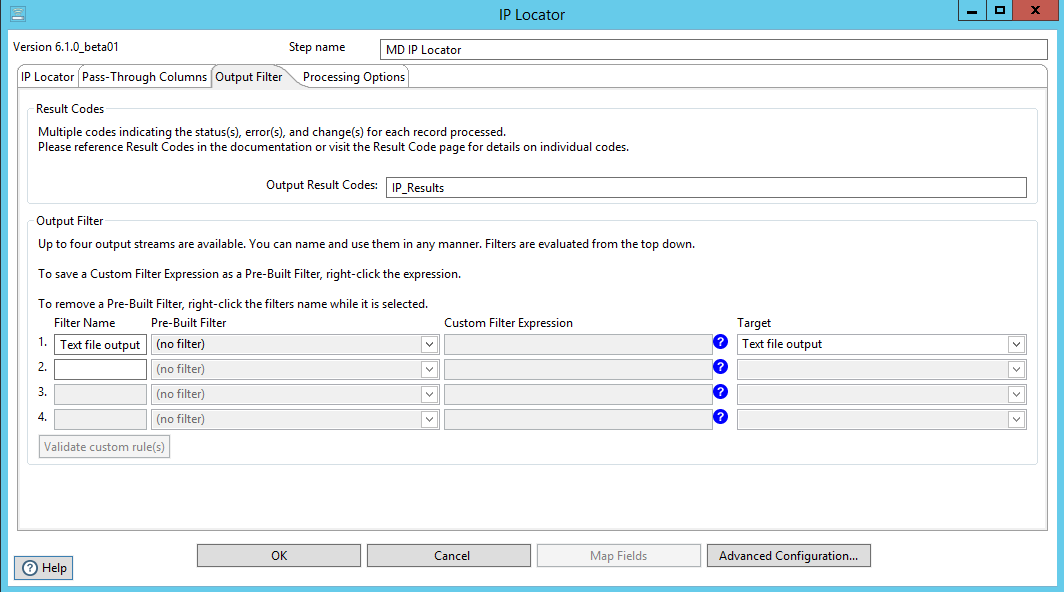
Processing Options
Choose which service type you want to use.
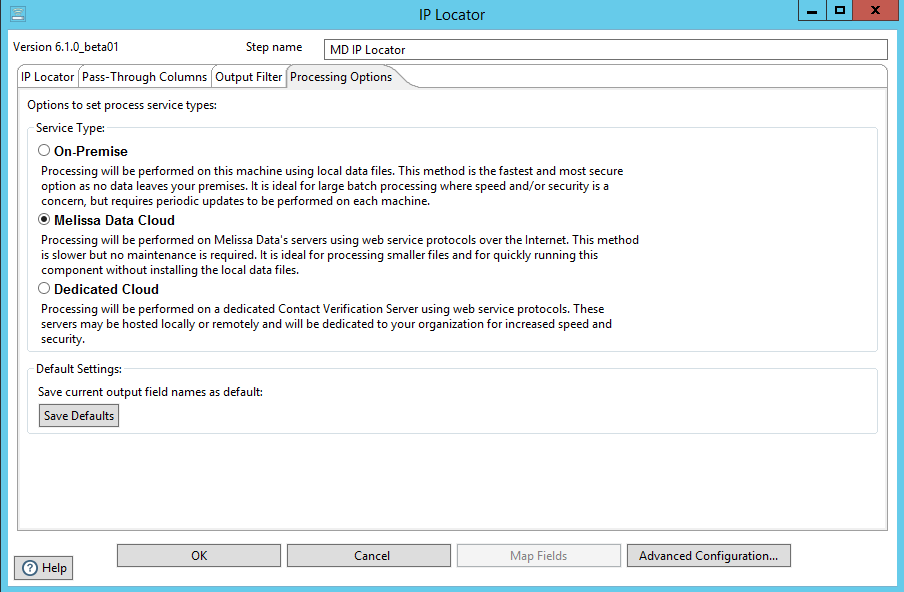
Connect Output
Add data destinations for downstream output. Configure the output in the same way that the input was configured.
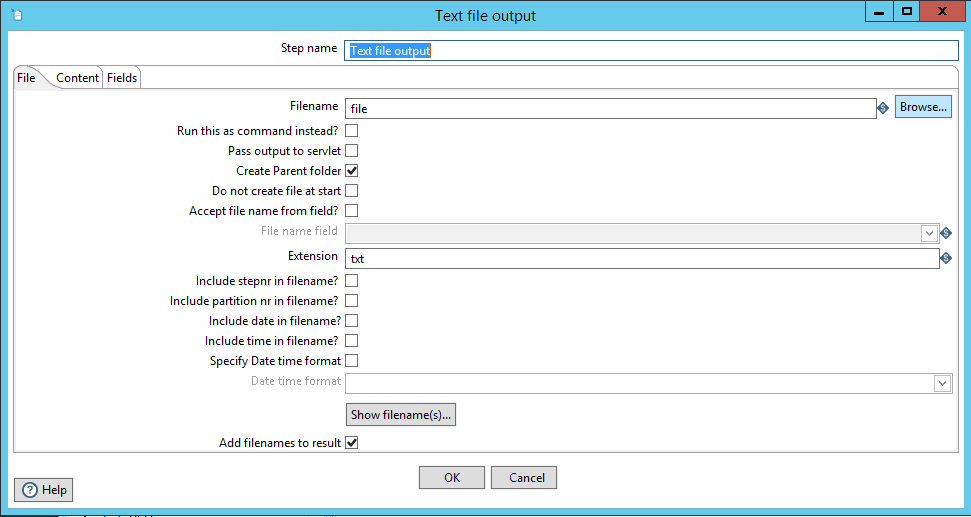
Connect the respective output filter pin to the output destination.
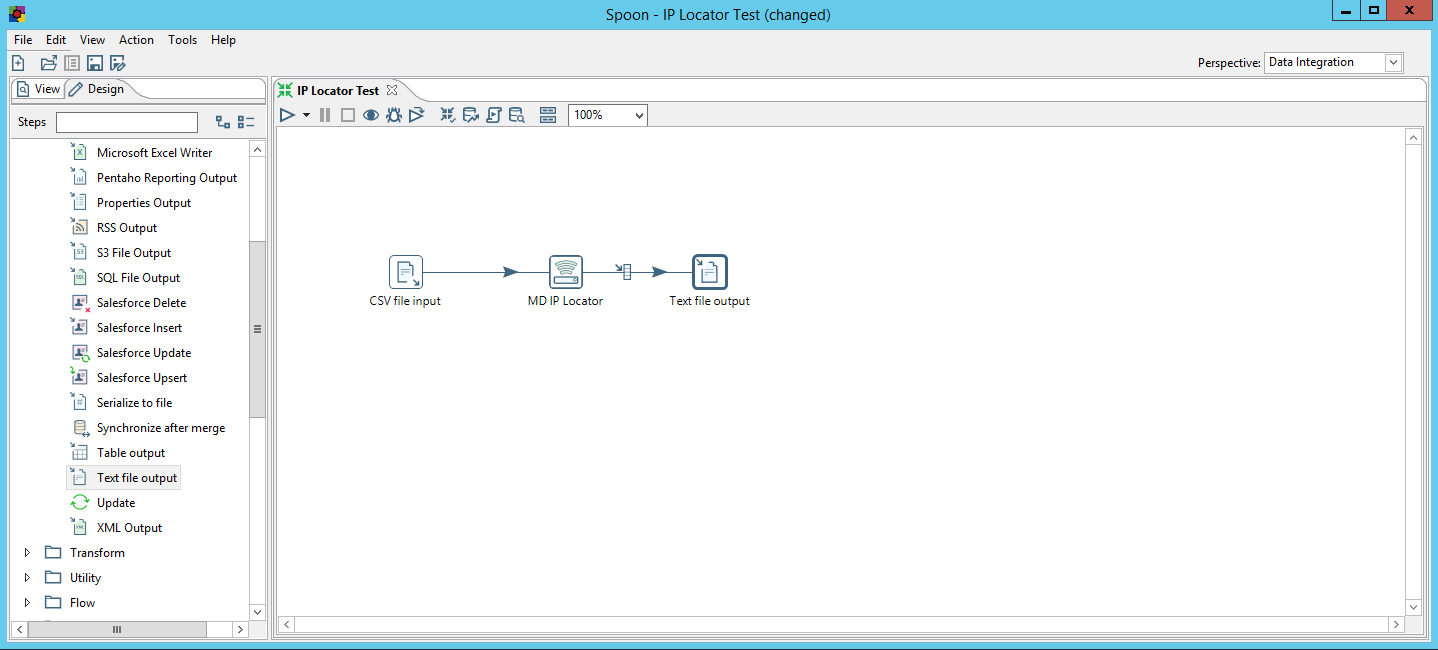
Save Settings
Click File and select Save as to save the project.
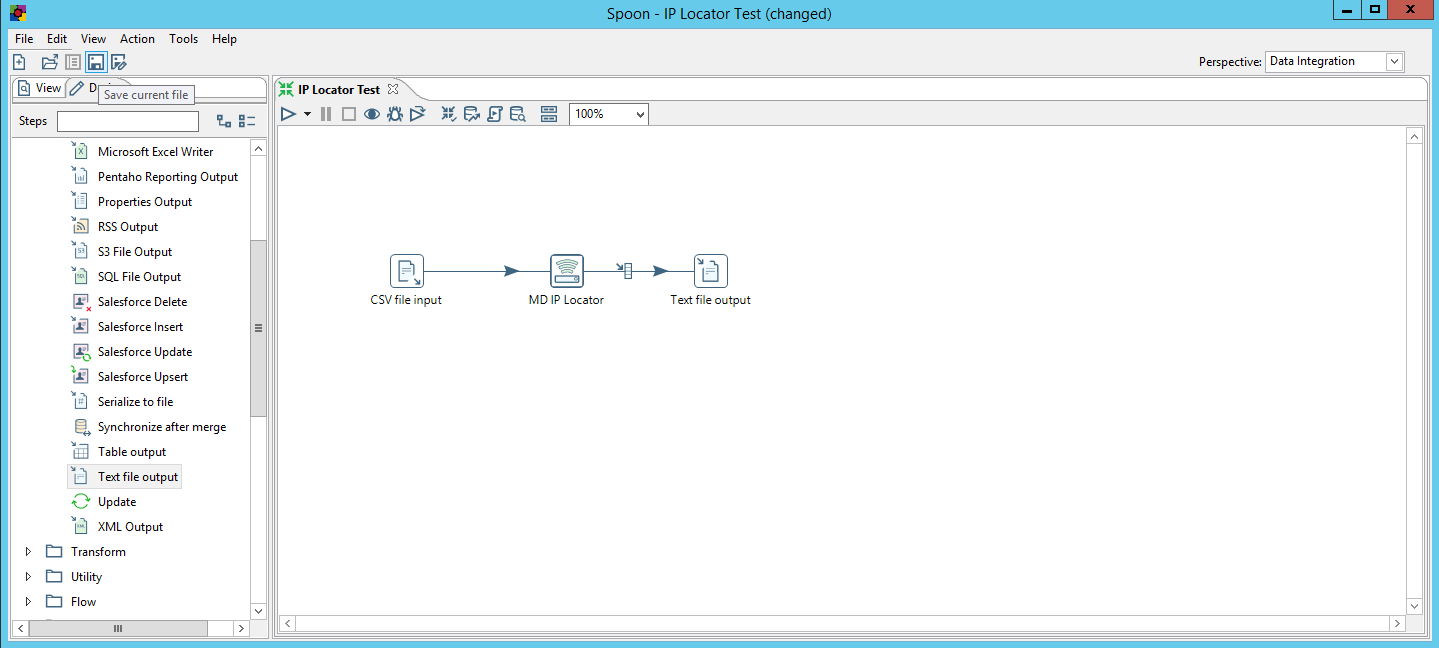
Run Project
Now, the project is ready to run. It is possible to observe in real time as records flow from your input source through the IP Locator Component and pipe output source depending on the filtering options.
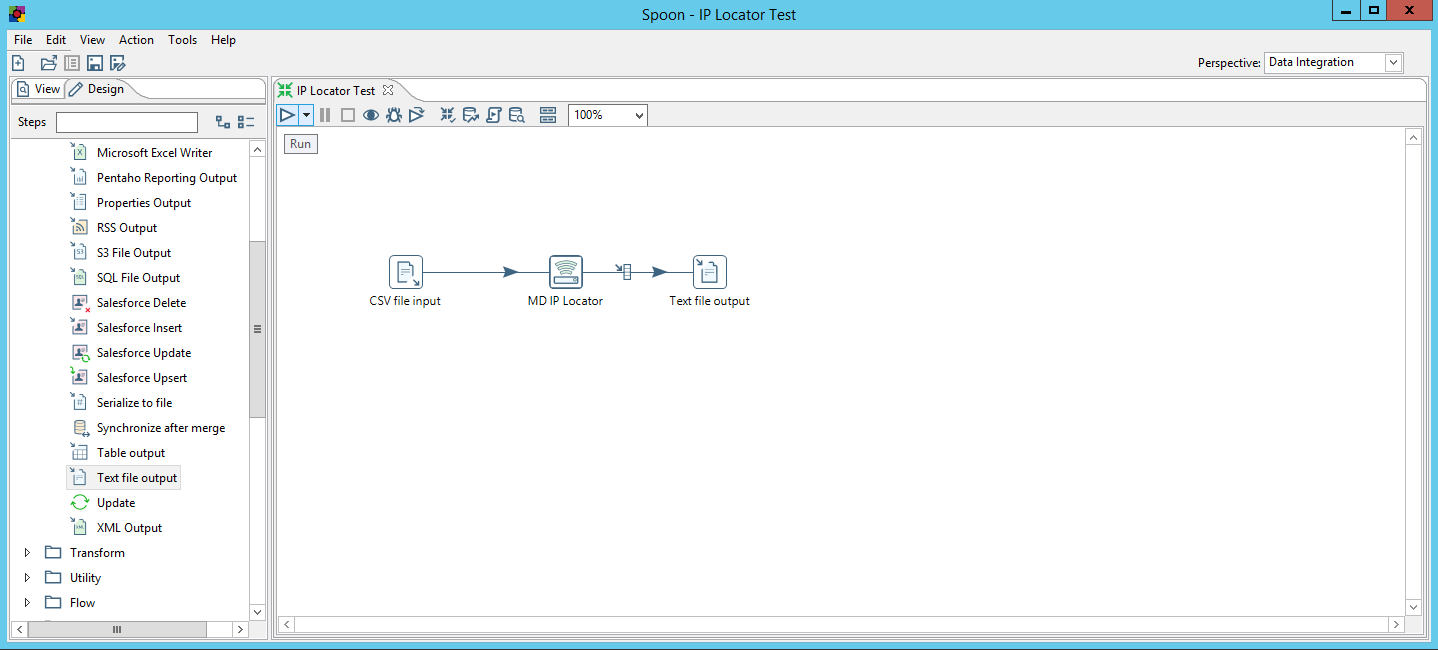
Run Options
Contact Zone will allow you to choose your options for the process that is about to run. It is possible to determine different levels of logging based on the user’s desired level of detail.
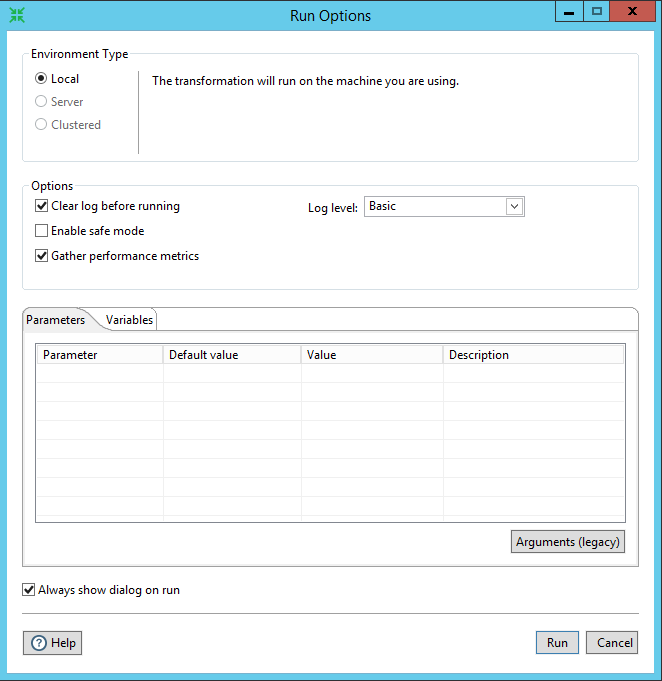
Transformation Complete
When the project has completed its run process, green checkmarks will be visible on the individual component. It is possible to preview the results by clicking the Preview data tab in the Execution Results portion of the window. At this point, you can also navigate to the directory of the output file and view the results directly.
